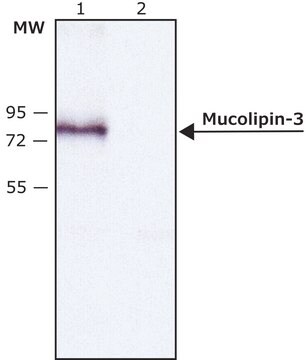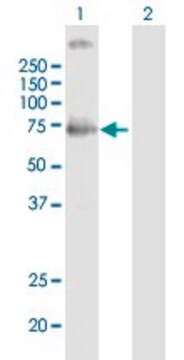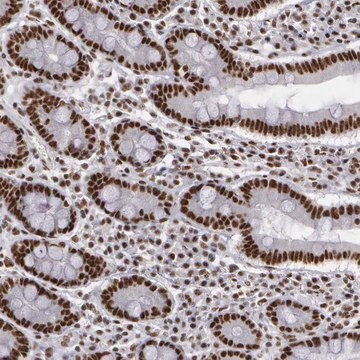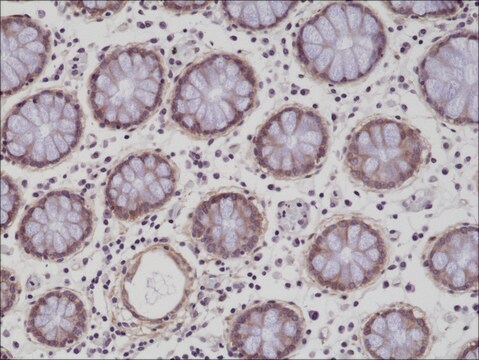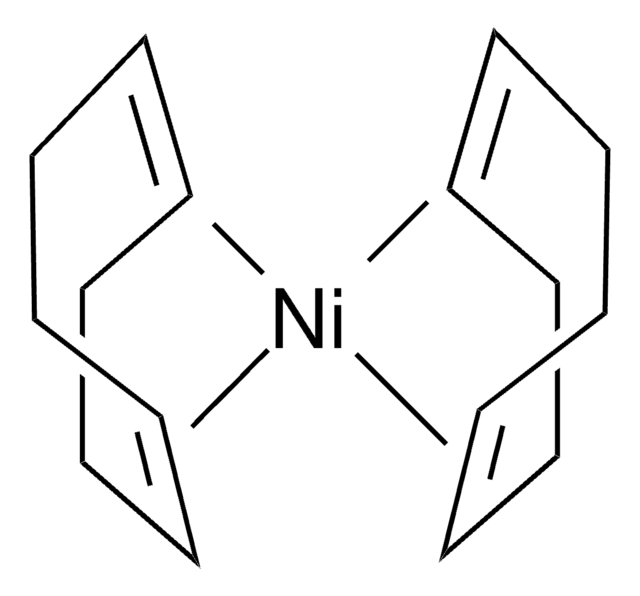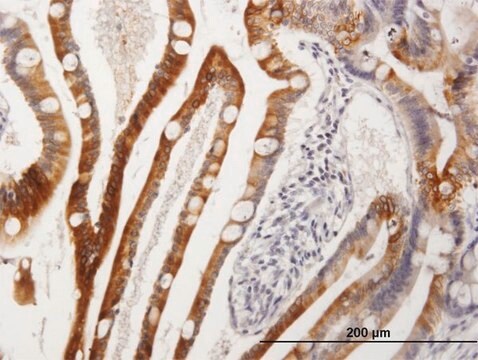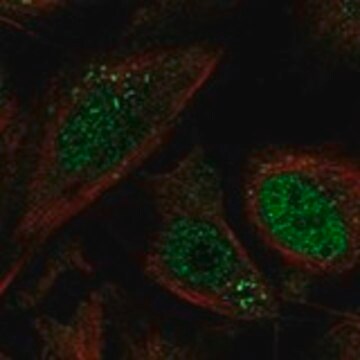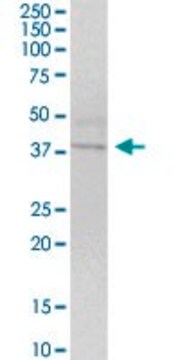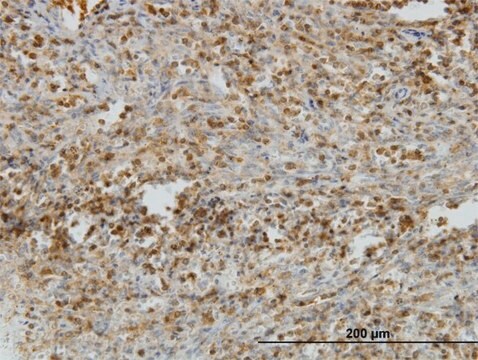Kluczowe dokumenty
M8072
Anti-Mucolipin-1 antibody, Mouse monoclonal
clone MLN128, purified from hybridoma cell culture
Synonim(y):
Anti-MCOLN1, Anti-ML4, Anti-MLIV, Anti-MST080, Anti-MSTP080, Anti-Mucolipidin, Anti-TRP-ML1, Anti-TRPM-L1, Anti-TRPML1, Anti-Transient receptor potential cation channel, mucolipin subfamily, member 1
About This Item
Polecane produkty
pochodzenie biologiczne
mouse
Poziom jakości
białko sprzężone
unconjugated
forma przeciwciała
purified from hybridoma cell culture
rodzaj przeciwciała
primary antibodies
klon
MLN128, monoclonal
Formularz
buffered aqueous solution
masa cząsteczkowa
antigen ~110 kDa (additional bands may be observed)
reaktywność gatunkowa
human
opakowanie
antibody small pack of 25 μL
stężenie
~2.0 mg/mL
metody
immunocytochemistry: suitable
indirect ELISA: suitable
western blot: 4-8 μg/mL using membrane fraction of HEK-293T expressing human mucolipin-1
numer dostępu UniProt
Warunki transportu
dry ice
temp. przechowywania
−20°C
docelowa modyfikacja potranslacyjna
unmodified
informacje o genach
human ... MCOLN1(57192)
Opis ogólny
Zastosowanie
- enzyme linked immunosorbent assay (ELISA)
- immunoblotting
- immunocytochemistry.
Działania biochem./fizjol.
Postać fizyczna
Oświadczenie o zrzeczeniu się odpowiedzialności
Nie możesz znaleźć właściwego produktu?
Wypróbuj nasz Narzędzie selektora produktów.
produkt powiązany
Kod klasy składowania
10 - Combustible liquids
Klasa zagrożenia wodnego (WGK)
WGK 1
Temperatura zapłonu (°F)
Not applicable
Temperatura zapłonu (°C)
Not applicable
Środki ochrony indywidualnej
Eyeshields, Gloves, multi-purpose combination respirator cartridge (US)
Wybierz jedną z najnowszych wersji:
Certyfikaty analizy (CoA)
Nie widzisz odpowiedniej wersji?
Jeśli potrzebujesz konkretnej wersji, możesz wyszukać konkretny certyfikat według numeru partii lub serii.
Masz już ten produkt?
Dokumenty związane z niedawno zakupionymi produktami zostały zamieszczone w Bibliotece dokumentów.
Nasz zespół naukowców ma doświadczenie we wszystkich obszarach badań, w tym w naukach przyrodniczych, materiałoznawstwie, syntezie chemicznej, chromatografii, analityce i wielu innych dziedzinach.
Skontaktuj się z zespołem ds. pomocy technicznej